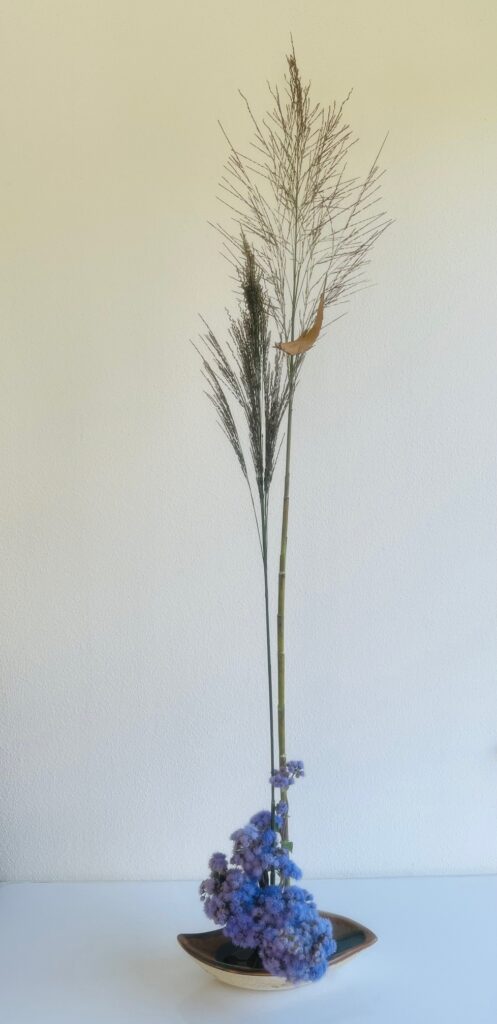
What is Ikebana
Ikebana, the Japanese art of flower arrangement, is much more than simply placing flowers in a vase. It’s a profound cultural practice that harmonizes nature, humanity, and space. With roots dating back to the 7th century, Ikebana has evolved into a disciplined art form, emphasizing minimalism, asymmetry, and the appreciation of natural beauty. Practitioners, known as ikebanists, meticulously arrange flowers, branches, and leaves to create compositions that reflect the seasons, emotions, and aesthetic principles.
Practising ikebana is a contemplative journey, inviting individuals to connect with the essence of each plant and the environment around them. Through its mindful approach and serene elegance, Ikebana continues to captivate hearts worldwide, offering a glimpse into the profound relationship between humanity and nature in Japanese culture.

The Sogetsu School of Ikebana

Founded in 1927 by Sofu Teshigahara, The Sogetsu School of Ikebana is known for its innovative and contemporary approach to flower arranging.
Creativity: Unlike some traditional styles, Sogetsu encourages freedom and creativity. Practitioners can use different materials and techniques to express themselves artistically.
Minimalism with a Modern Twist: Sogetsu Ikebana likes to keep things simple, but with a modern touch. Designs might have bold lines and shapes, reflecting today’s tastes while still respecting Ikebana’s traditions.
Focus on Lines and Space: Sogetsu emphasizes how lines and space interact in arrangements. Practitioners carefully think about empty spaces and how lines flow, creating arrangements that are visually appealing and balanced.
Accessibility and Adaptability: Sogetsu believes Ikebana should be for everyone, no matter their background. Its teachings can be used in many settings, from formal events to everyday home decoration.
Constantly Changing: Sogetsu Ikebana is always evolving. While it values tradition, it also embraces new ideas and styles, staying relevant in today’s world.
Overall, Sogetsu Ikebana blends tradition with modernity, encouraging practitioners to be creative while respecting the beauty of nature.

